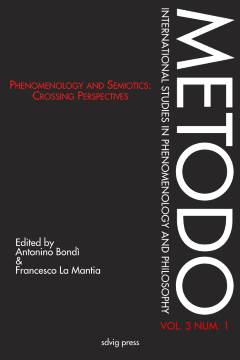Repository | Journal | Volume | Articles

(2016) Metodo 4 (1).
Husserl’s reflections on the European crisis appear philosophically confused and politically counterproductive. After acknowledging this appearance, I make a case for their continued philosophical and political importance. I attempt to resolve philosophical confusion by clarifying the attitude that addresses the crisis as the ‘attitude of the phenomenologist’ and distinguishing this from the phenomenological attitude. The former contends with problems pertaining to phenomenology as a cultural structure. I show how Husserl’s conception of a ‘European crisis’ results from confronting one such problem. After outlining what Husserl means by ‘Europe,’ I assess the relevance of the concept to the critique of Western imperialism. I argue that Husserl’s program of Europeanization opposes ethnocentrism and cultural imperialism, but remains within the framework of an unwarranted European exceptionalism. I suggest that the political and historical concepts central to Husserl’s engagement with the crisis problematic need not determine the problematic itself, which deserves further thinking through.
Publication details
Full citation:
Knies, K. (2016). A qualified defense of Husserl's crisis concepts. Metodo 4 (1), pp. 27-47.
This text is available for download in the following format(s)
This document is available at an external location. Please follow the link below. Hold the CTRL button to open the link in a new window.


